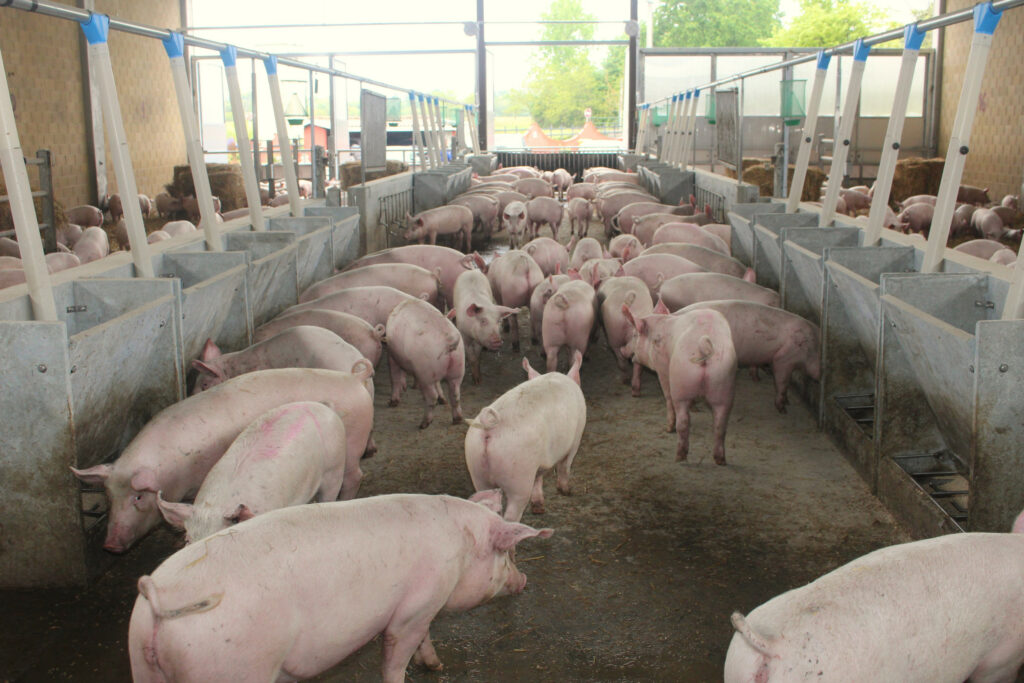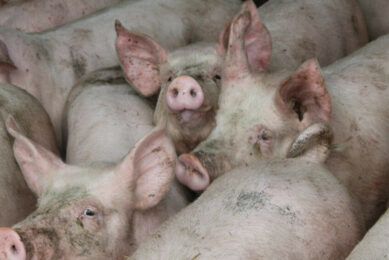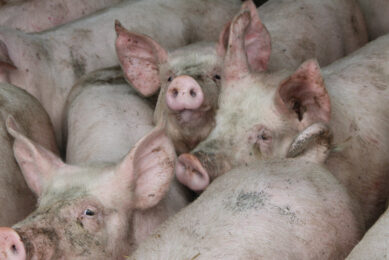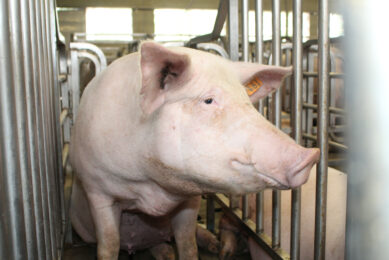Farm visit: From straw in Italy to retailers in Britain
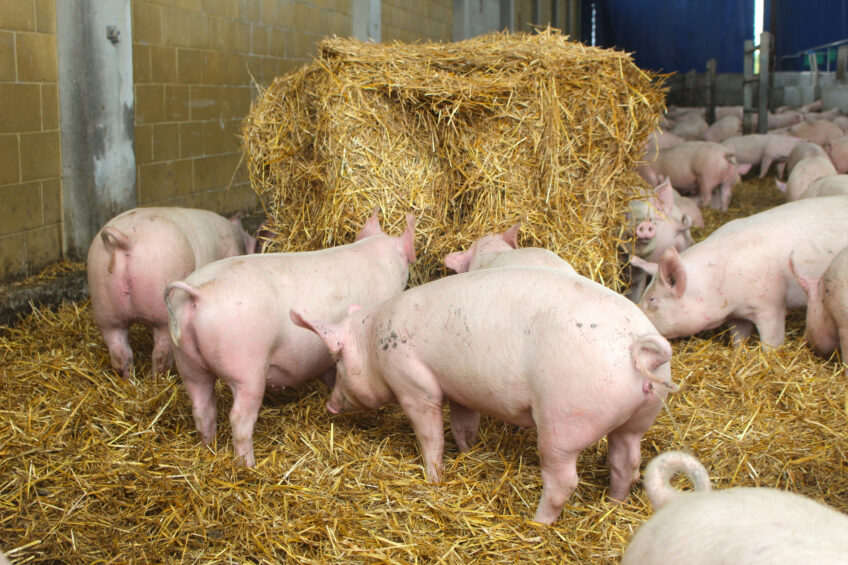
A few years ago, the Bassino family in Northern Italy went for a radical change. Out went 500 beef cattle, in came finisher pigs and much, very much straw. Now the farm operates within the Fumagalli concept, producing high welfare heavy pigs for both the Italian and European markets, including those in the UK.
Keeping finishers on straw is a matter of self service, this much the Bassino family knows. Just drop a number of cylinder shaped bales of 300 kg each into the pig house and the animals themselves do pretty much all of the unpacking. In the back of the pig house, a group just decided to jointly take on one of the piles. The straw is being attacked, played with, thrown around, eaten. The pile rapidly collapses as pigs running around with heaps of straw in their mouths or on top of their heads.
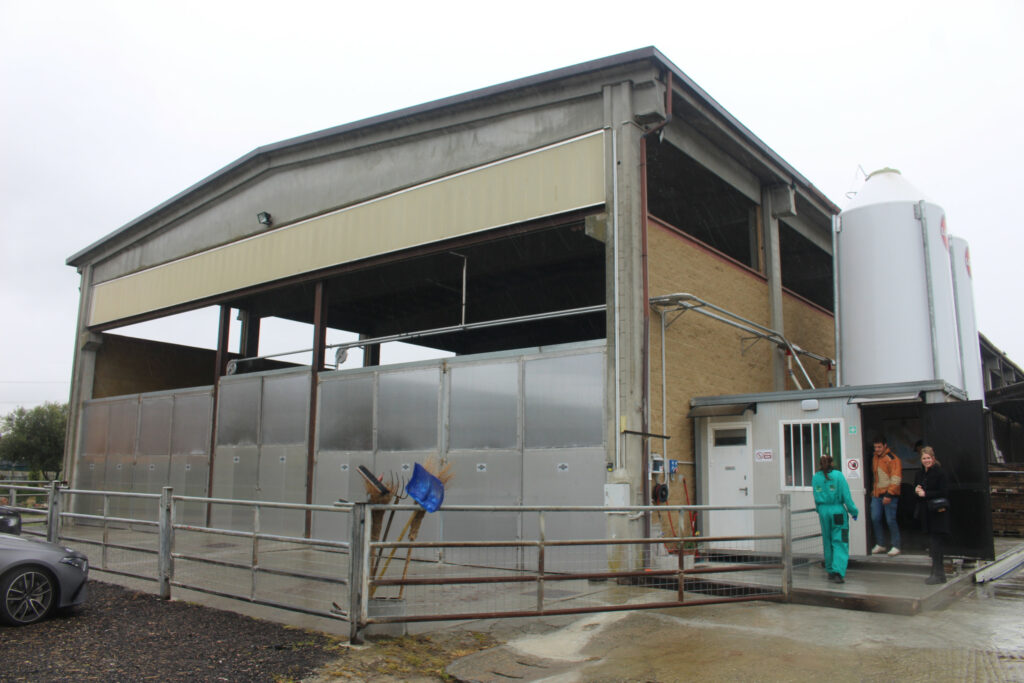
Of course, keeping pigs on straw does come with some work, as it also requires frequent cleaning and refreshing. The straw in the 2 pig houses at Azienda Agricola Vanessa Bassino gets renewed every 7 to 10 days. The removal of straw happens per tractor. Nicholas Bassino simply temporarily chases out the pigs in one zone, closes it off, then removes the straw, and lets the pigs back in again. It takes about 2 hours to remove all straw with faeces from the whole pig house, he explains. The “old” straw will eventually be used for biogas production on-site.
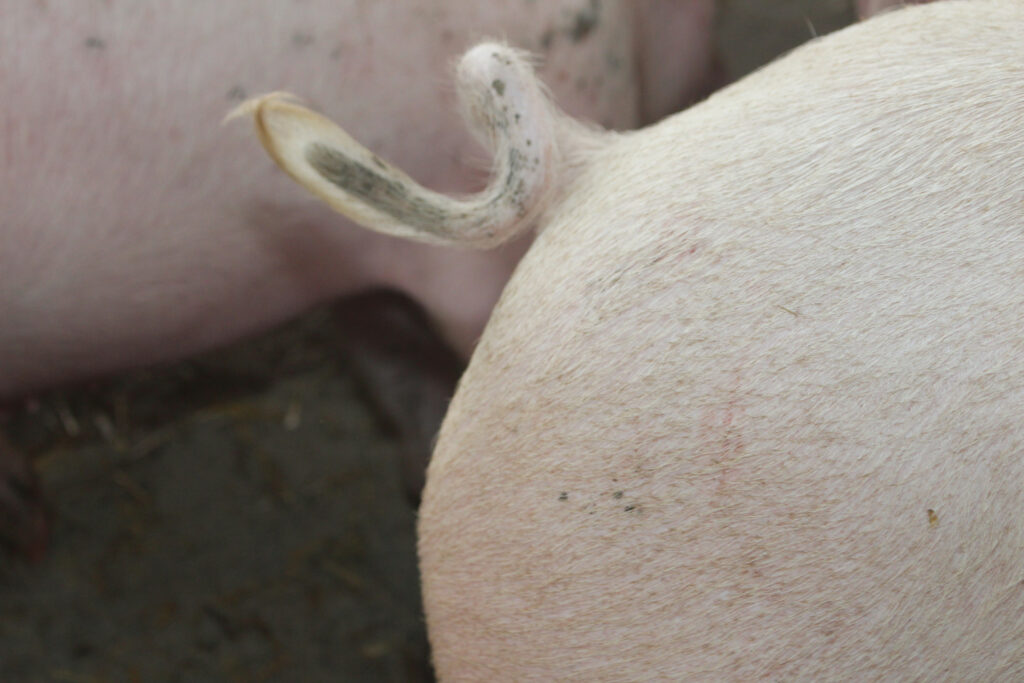
Pigs in 2 large houses
Straw bedding as well as pigs, however, were unheard of up to a few years back at this farm near San Giusto Canavese, about 40 km north of Turin, Italy. The farm was originally built in 1984 to house a total of about 500 beef cattle. In October 2020, however, the last cattle left the farm. The beef business did not provide a secure future, so Dario Bassino and his wife Marzia Boggio felt it was time for a change.
To be able to work in agriculture sustainably together with children Vanessa and Nicholas, they opted for high welfare pigs. Therefore, since 2023, the same farm is home to about 1,800 finisher pigs, all of the same age. They are being kept in two naturally ventilated barns without pens; both barns together have a flooring surface of 2,200 m2.
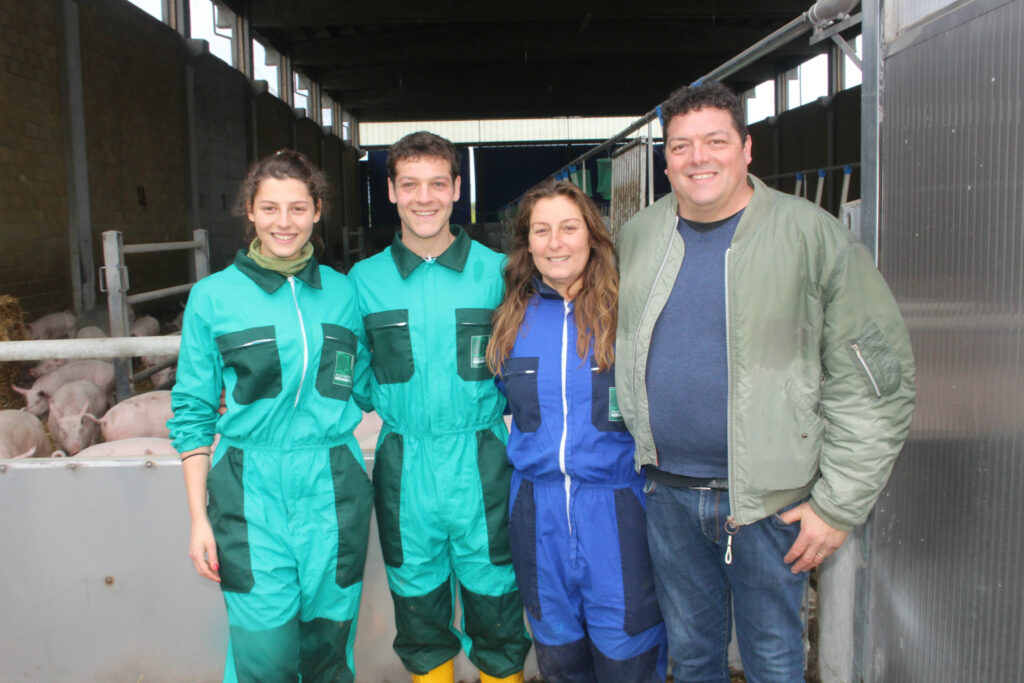
Parma ham and high welfare
The make-over was a consequence of the family teaming up with Fumagalli in 2022 — an integrated chain concept (see Box) which is combining top-end Parma ham production with welfare, marketing its own typical charcuterie products in both Italy and abroad. Dario Bassino says, “We met with Fumagalli for the first time in 2020. They offered to help to have the farm completely renewed and changed over.”
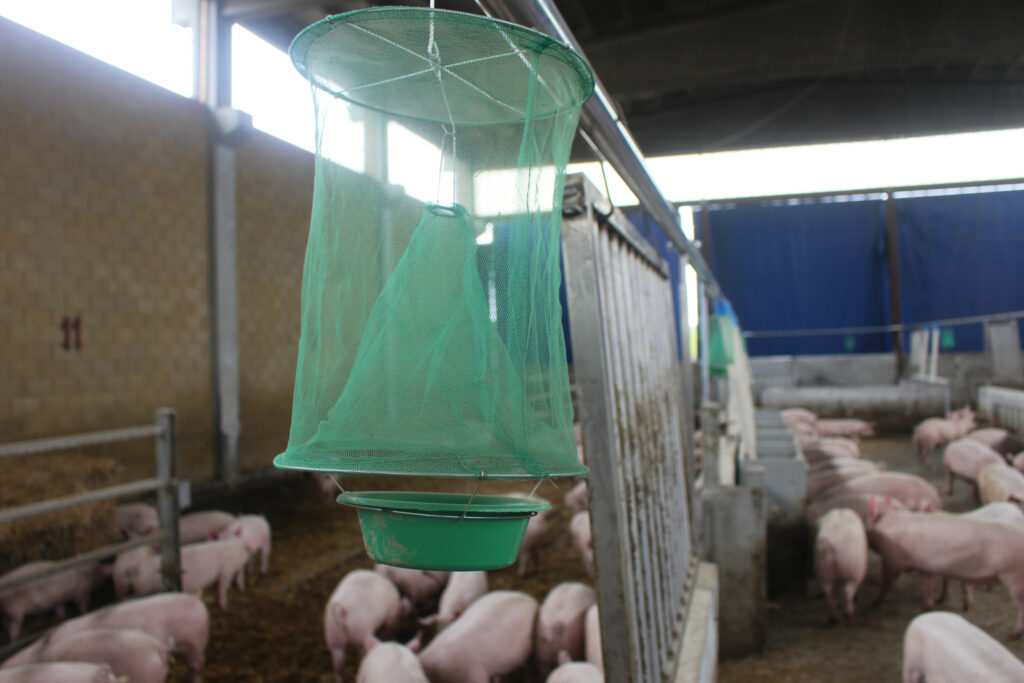
Fumagalli invested to have the farm redeveloped, which first of all came down to taking out a lot of equipment. In the current set-up, the farm’s previous purpose can be seen as the elevated aisle – that used to be a passage for the producer – which has been converted into a long feeding zone, with numerous sets of feeders and water troughs on either side. The pigs can go and choose to run around in the wide open spaces to the left and the right of the central alley and come to rest in the straw if they feel like it. Throughout the barns there are various types of distraction materials available, like large yellow balls or red toys on a chain.

The pigs can go anywhere in the houses; according to the Fumagalli standards, each animal is entitled to 1.3 m2 of living space. Under the contract agreement, the Bassino family is looking after the pigs and doing daily management, whereas feed costs, as well as veterinary support, will be covered by Fumagalli.
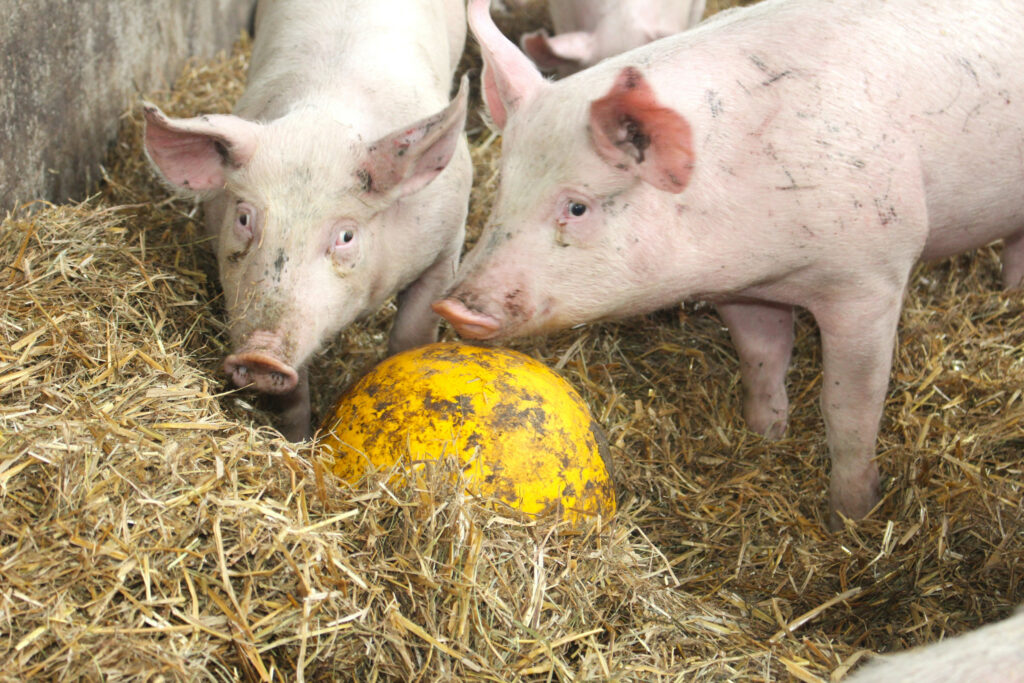
Farm management
The family members are the only ones working at the farm. They do so by providing the pigs with 2 dry meals per day. At 8am a round usually starts to check if everything is OK. Normally, the feed is being supplied ad lib until about noon, says Nicholas Bassino.
All pigs are of the same age as they all follow a similar life path. They were all bred on a free farrowing farm near Nerviano (close to Milan), were weaned at 28 days and then spent roughly 9 to 10 weeks at 2 grower farms, before being transported to the Bassino finisher facility.
The finisher pigs will be fed 4 different types of dry meals, depending on their age. The meals will always consist of corn, barley and soya. These are supplemented by feed concentrates by Cargill Animal Nutrition and delivered via Cargill distributor Platto Animal Nutrition. Feed of different composition is provided for pigs weighing 30 to 50 kg; 50 to 80 kg; 80 to 110 kg and 110 to 180 kg.
As part of the high welfare concept, tails are not docked. This does not appear to lead to any tail biting problems, as all tails looked intact during the visit. Similarly, teeth grinding is not allowed either. Only castration is applied (with anaesthetics and analgesics), as that is conventional with Italian heavy pig production. It is common knowledge that the presence of testicles get in the way of decent heavy ham production.
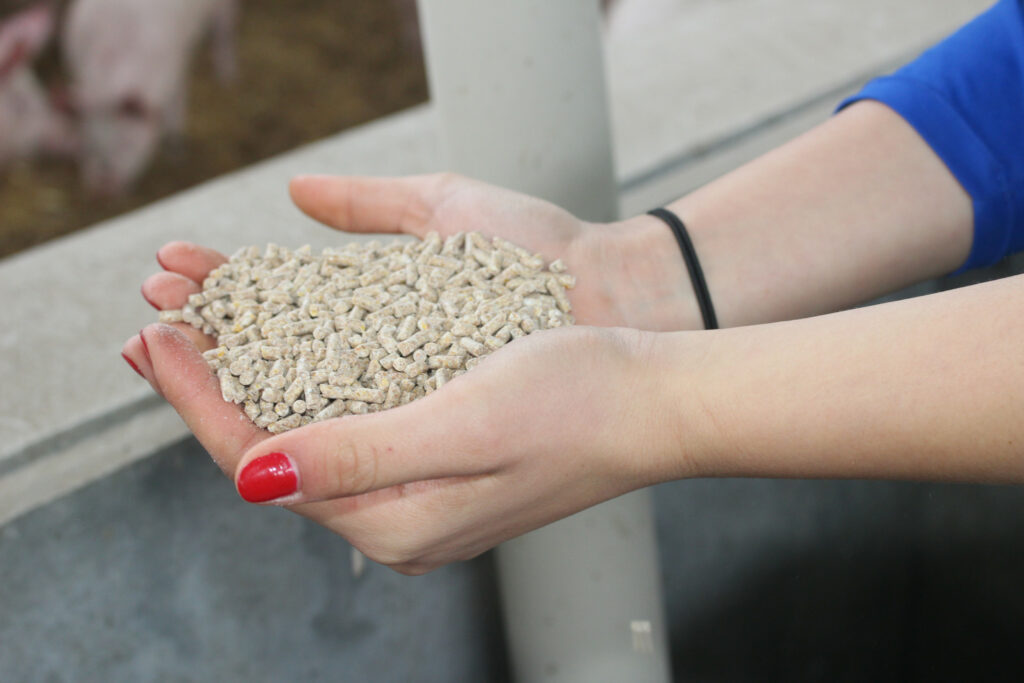
Straw and biosecurity
A quick look back at the straw. As African Swine Fever (ASF) has advanced quite a bit in Northern Italy, is the family not afraid that, one day, it might hit their farm, perhaps via the straw? Dario Bassino shakes his head. He is critical when choosing the origin of his new bales of straw. Currently, they are supplied by a neighbouring farmer. However, should ASF become more prevalent in the region, then bales of straw can also be acquired from further away, for instance from Puglia province in the south of Italy. He is not afraid of the virus and emphasises that double fencing and also compulsory car disinfection upon entrance should minimise the risk of pathogens getting in.
Perhaps the biggest threat of ASF will come from indirect losses. Should ASF be found in the direct vicinity, then all kinds of emergency protocols may start applying, leading to pigs having to be sent to a local slaughterhouse against fixed lower prices — even when the animals are totally healthy.
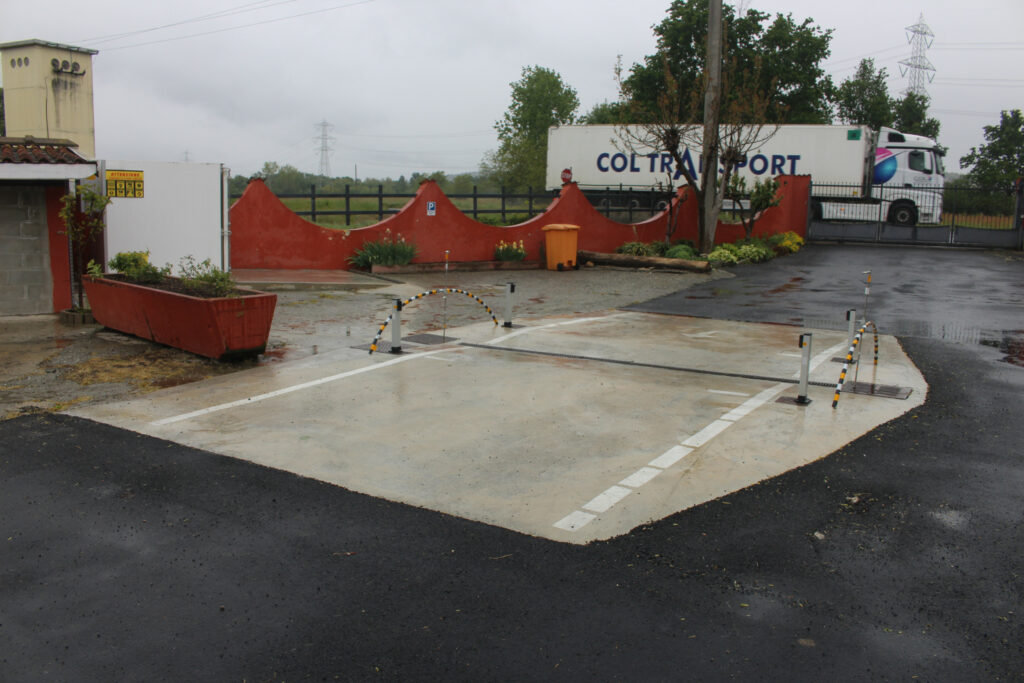
Sending off heavy pigs
And then, even after a stay of six months, for heavy pigs at a minimum weight of 180 kg (at about nine months of age) the moment comes to say goodbye. Loading the first batch of 1,800 pigs was a matter of a few hours, recalls Dario Bassino. They were brought to a Fumagalli slaughterhouse in Como, a drive of about two hours. What was left to do for the Bassino family was some proper cleaning — which took about five to seven days, before the farm was ready to welcome the next batch of 1,800 pigs.
Dario Bassino and his family are happy with the switch to Fumagalli. The straw keeps the air relatively fresh, which is a difference from conventional pig farming. In addition, he says, the family enjoys keeping them under high welfare conditions. He says, “Welfare is not a burden, but an enhancer of performance. Happy pigs also lead to happy workers.”
Special thanks to Graziano Mantovani of Cargill Animal Nutrition, Marco Platto of Platto Nutrition and Pietro Pizzagalli from Fumagalli Group to make this visit possible.
